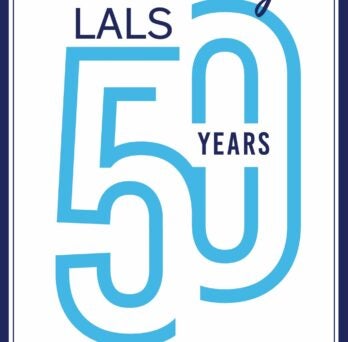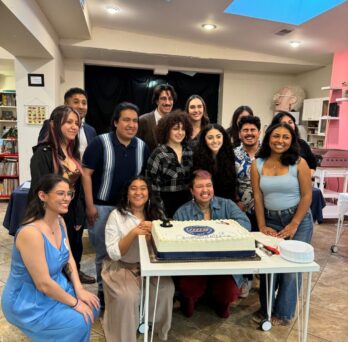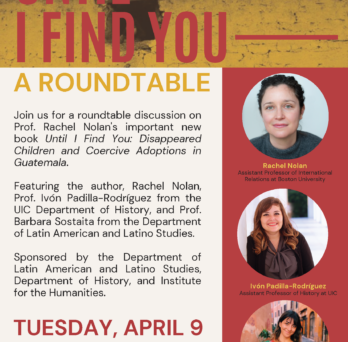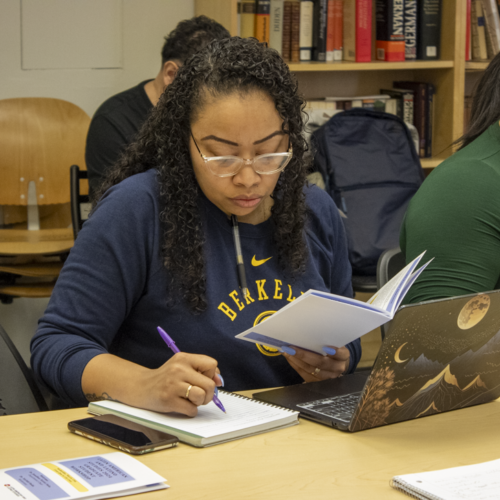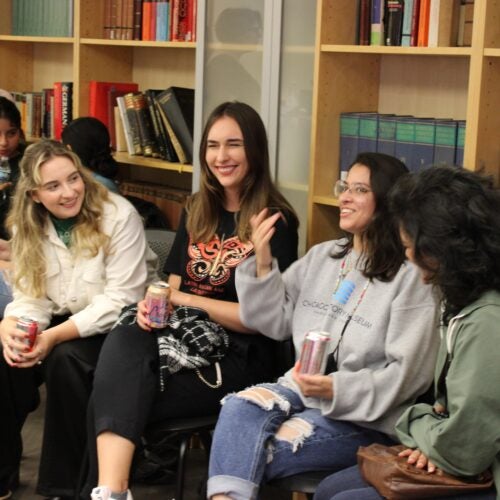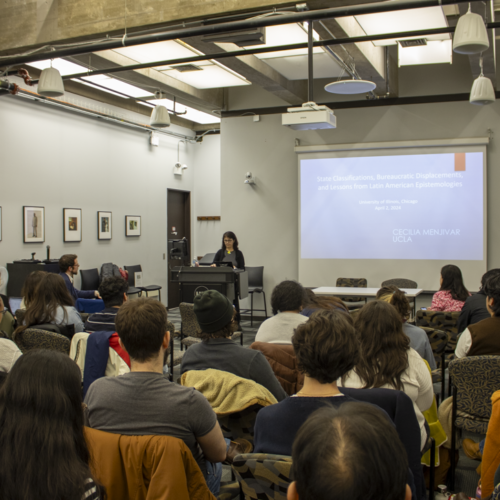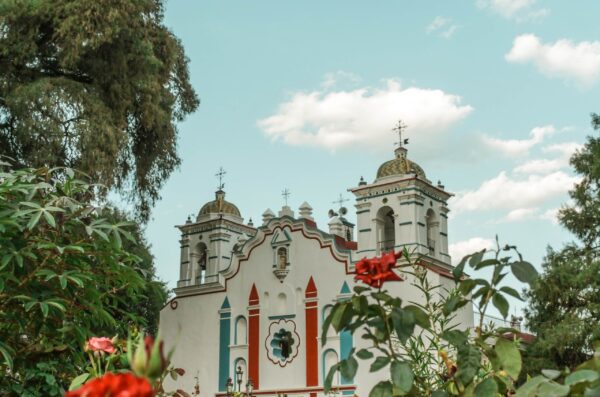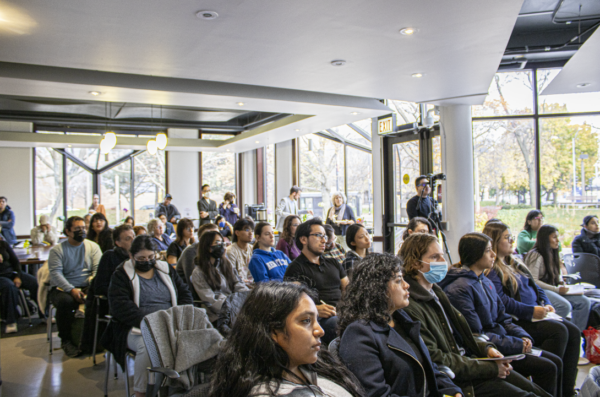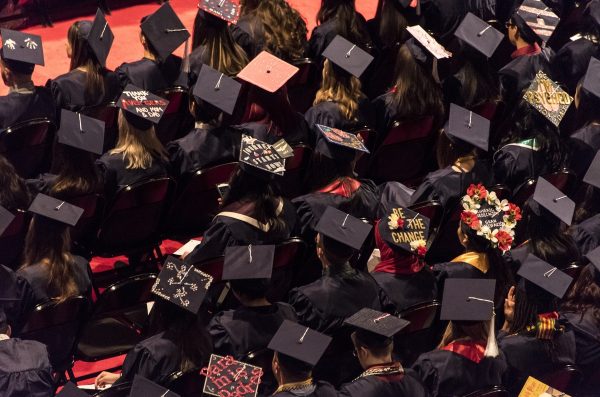LALS News & Events Heading link
Sep
5
2024
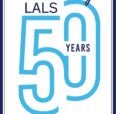
Celebrating 50 Years: The Making of Latin American and Latino Studies
Thursday, 2:00 pm–5:00 pm
Cardinal Room, Student Center East
Sep
19
2024

Bordando Esperanza/Embroidering Hope Opening Reception
Thursday, 6:00 pm–8:00 pm
18th Street Casa de Cultura
Sep
30
2024

Sanctuary Everywhere: The Fugitive Sacred in the Sonoran Desert Book Launch
Monday, 7:00 pm–9:00 pm
Pilsen Community Books
Oct
16
2024

Undocumented Knowledges
Wednesday, 12:00 pm–2:00 pm
Latino Cultural Center
Nov
4
2024

Contemporary Black Diasporas across the Americas
Monday, 3:00 pm–5:00 pm
Daley Library, Room 1-470
Nov
8
2024

Latinx and Latin American Futures: Celebrating 50 Years of LALS and 20 Years of Alianza Americas
Friday, 8:30 am–12:00 pm
Illinois Rooms A & B, Student Center East
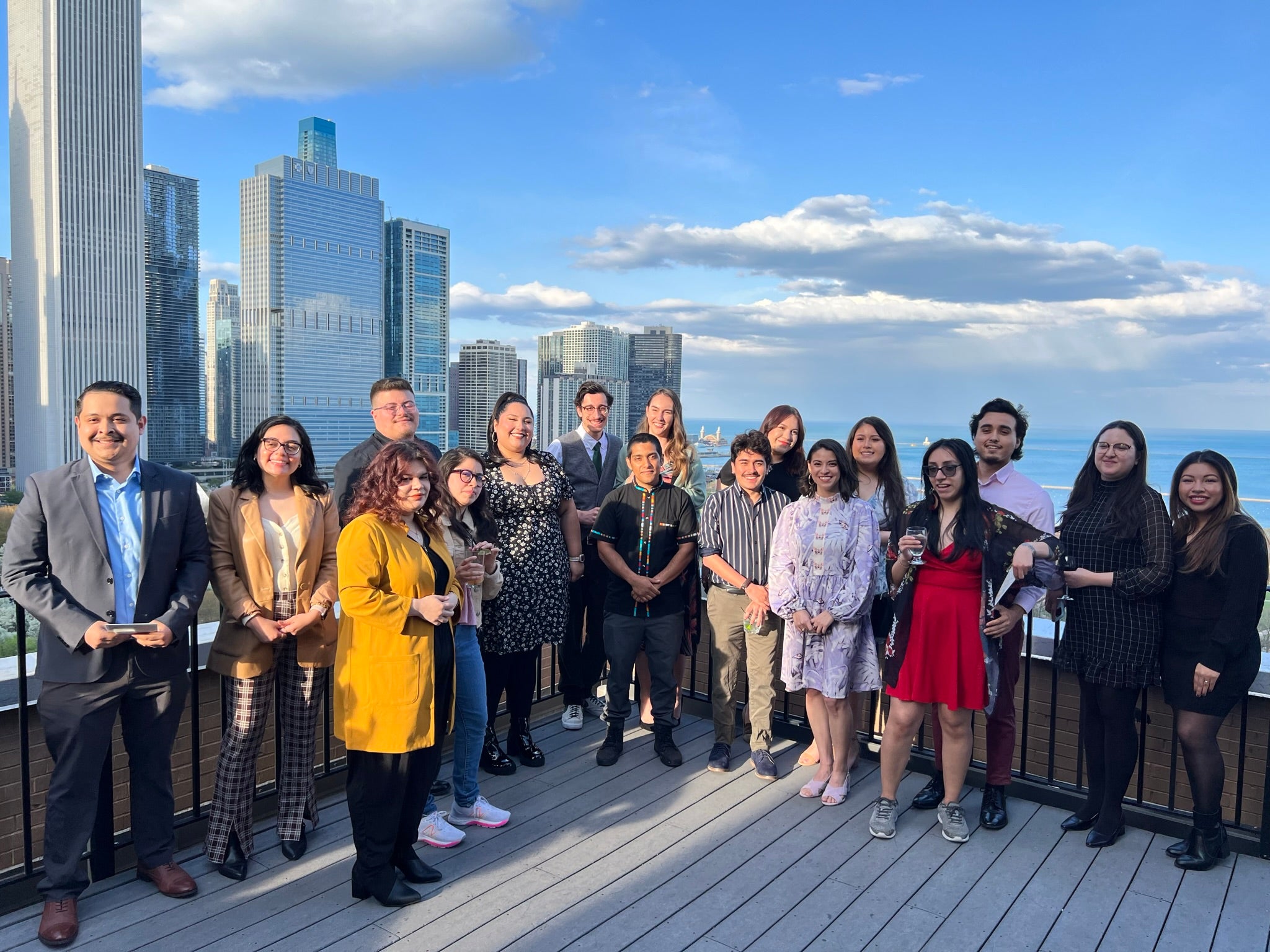
LALS Heading link
The Department of Latin American and Latino Studies (LALS) is a vibrant interdisciplinary unit devoted to cutting-edge research, teaching, and community engagement focused on Latina/o and Latin American populations.
Our focuses Heading link
Our focuses
Transnationalism ÷ Migration ÷ Asylum ÷ Deportation ÷ Remittances
Chicana/Latina Feminist Thought ÷ Latina Popular Feminism(s) ÷ Latinx Soundscapes ÷ Intersectionality ÷ Precarity
Gender ÷ Women of Color Feminisms ÷ Latinx Youth Studies ÷ Education
Violence ÷ Displacement ÷ Criminal Governance
Poetry ÷ Poetic Writing ÷ Creative Human Expression
Latinx Health ÷ Sexuality ÷ Gender Equality
Political thought ÷ Diaspora ÷ Youth Political Engagement ÷ Democratization
Critical Thought ÷ Democracy ÷ The State ÷ Rhetorical Practices ÷ Indigeneity ÷ Environment ÷ Disaster Theory
Colonialism/Postcolonialism ÷ Native Methods ÷ Aztec Culture ÷ Nahuatl
